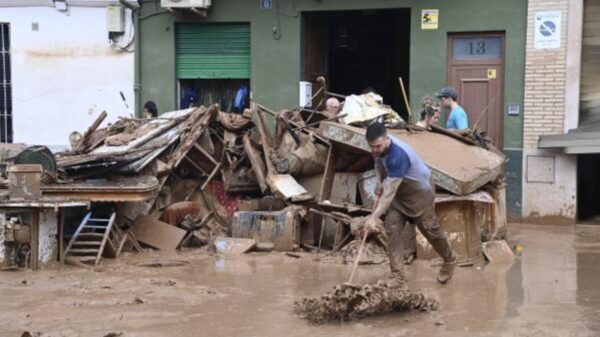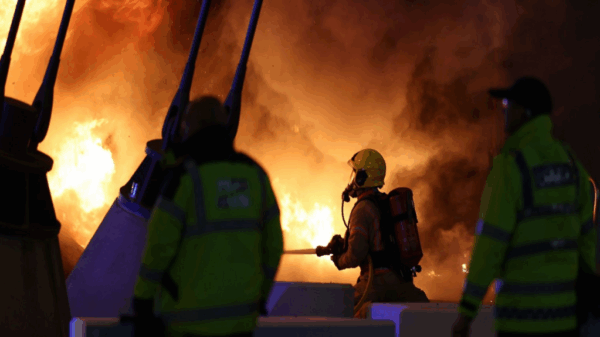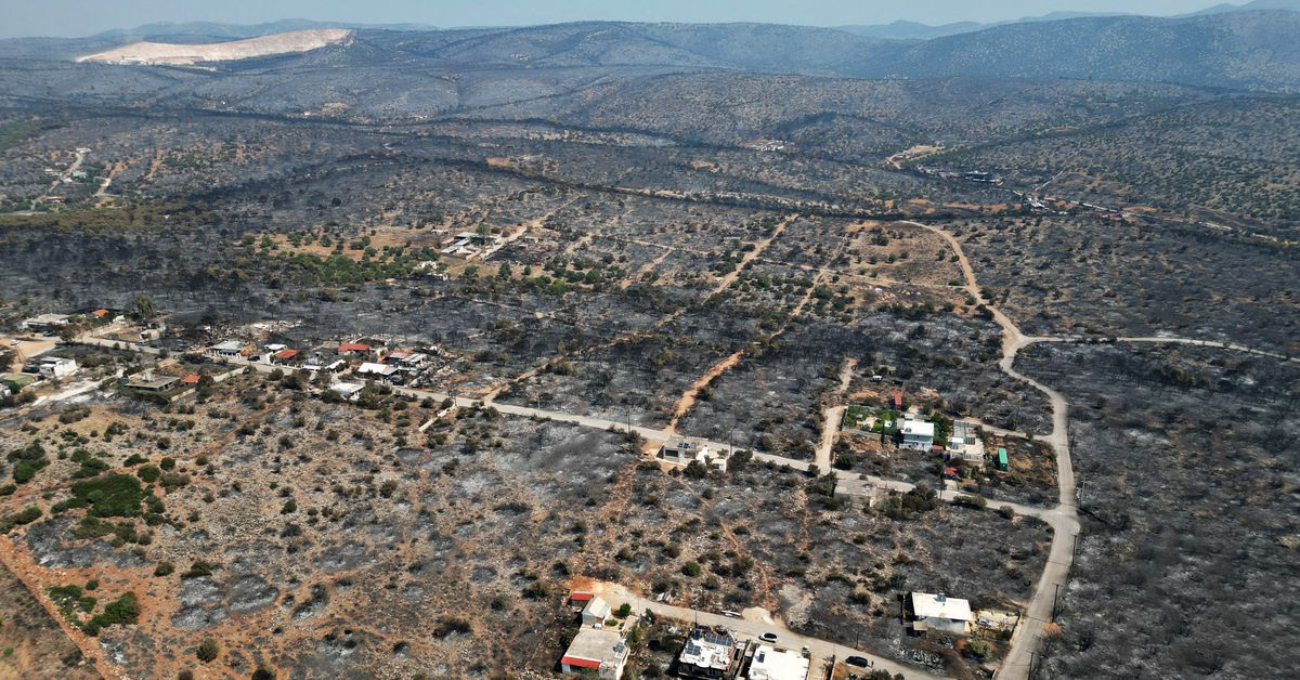Wildfires across Greece slowly abated on Thursday (20 July) after razing swathes of forest and dozens of homes in the past days, but temperatures rose, threatening new outbreaks in tinderbox conditions.
With temperatures expected to hit 45 degrees Celsius (113 degrees Fahrenheit) in the coming days, the Culture Ministry said all archaeological sites, including the Acropolis monument, will shut between 12 noon and 5.30pm (0900-1430 GMT) until July 23.
Firefighters, backed by air water bombers and reinforcements from Italy, France and Israel, still struggled to bring under control a fire west of Athens, which gutted houses and prompted evacuations earlier in the week.
On Thursday, fires in an area west of capital as well as the island of Rhodes and in Lakonia in southern Greece that had been beaten back in recent days grew bigger again, forcing authorities to evacuate more villages.
“Our forces are facing a big resurgence in West Attica, Rhodes and Lakonia,” Fire Service spokesman Ioannis Artopoios told a televised briefing.
On Rhodes, firefighters were battling a blaze from both the air and land that erupted on Tuesday in a densely wooded mountainous area, forcing people to flee.
The country had just recovered from the first major heatwave of the summer before temperatures rose again on Thursday, reaching 40C in some areas.
The meteorological service warned of a heightened risk of fires from Friday when the mercury was expected to rise further and reach a maximum of 45C over the weekend.
“We have another heatwave ahead of us and possibly stronger winds later on, so we need to remain absolutely on guard for the coming days,” Prime Minister Kyriakos Mitsotakis said.
Mitsotakis, who was re-elected last month, said Greece should intensify its fire prevention efforts.
Fires are common in Greece, but hotter, drier and windy summers have turned the Mediterranean into a wildfire hotspot in recent years.

































